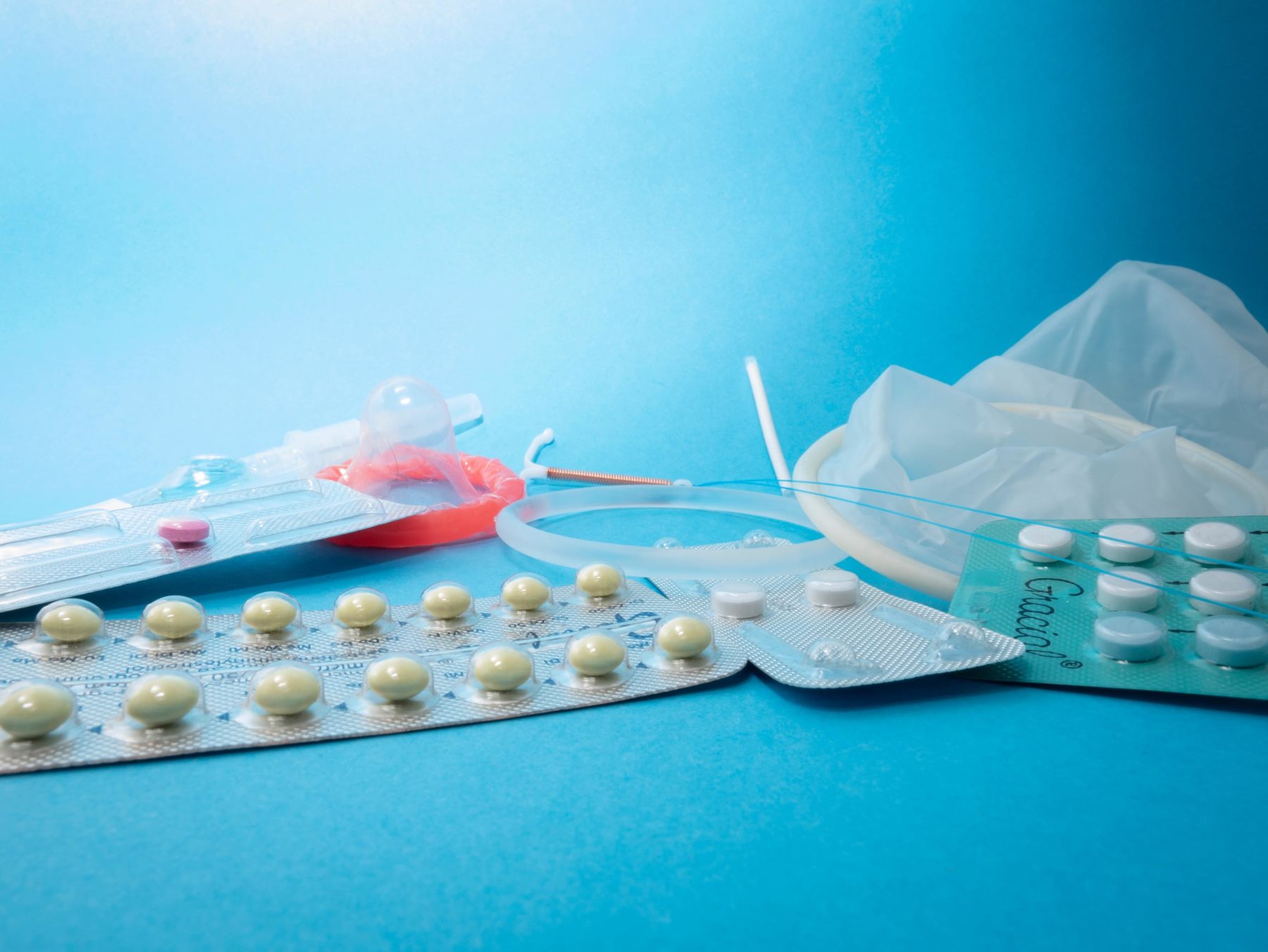What You Need to Know About Hormonal Birth Control and Transitioning Off the Pill

If you’ve ever pulled out the paper slip in a birth control box, unfolded the massive paper and thought, “Wow, those are a lot of side effects,” you’re not alone. Hormonal birth control is not only used to avoid pregnancy but also to help with decreasing pain during periods, lessening flow or easing acne flare-ups. According to the CDC, in a study conducted between 2015 and 2017, over 60% of women ages 15-29 were using the pill or another form of contraception. In addition to the pill, other forms of hormonal birth control include an IUD and shots.
The menstrual cycle is the fifth vital sign, meaning it can give tremendous insight into the health of the menstruating individual. There is a symphony of hormones orchestrated in a rhythm enabling the release of an egg for fertilization. If fertilization does not occur, then menstruation occurs. Often, the menstrual cycle is notorious for being the “worst part of the month.” However, it can bring tremendous gifts when balanced. (See my “Honoring the Female Rhythm” article in the October issue).
When on hormonal birth control, this entire process gets shut down. Synthetic hormones are used in place of the natural hormones to carry out the process of the contraceptive. These hormonal contraceptives make ovulation impossible, and the period is a withdrawal bleed from the synthetic hormones.
Many people get on the pill to help with the symptoms listed in the beginning of this article. While one may experience results on hormonal contraceptives, it is not addressing the root cause, and when you get off of hormonal birth control, those symptoms will still be present.
Not only will you experience those symptoms you were trying to avoid, but there could be others developing — without you knowing.
In Dr. Jolene Brighten’s book “Beyond the Pill,” she explains hormonal birth control side effects worth mentioning:
- 300% increased risk of developing Crohn’s disease, which is a digestive disease consisting of abdominal pain and diarrhea.
- Disruption in the gut microbiome that can hinder detoxification and lead to estrogen dominance.
- Increased risk of cancer.
- Increased risk of depression.
- Lower thyroid levels.
- Nutrient depletion of essential nutrients for metabolism, immune system support and overall function.
- Increased inflammation that can lead to a plethora of issues like brain fog, weight gain, joint pain and autoimmune response.
The longer you use hormonal contraceptives, the higher risk you are for developing these issues. Unfortunately, many women that are prescribed hormonal birth control are not given this information.
If you are considering getting off hormonal birth control, there is another thing you should know. “Post-Birth Control Syndrome” is a term that is slowly being recognized in the medical community to describe the side effects that may occur.
Symptoms include:
- Acne
- Depression
- Insulin resistance
- Changes in bowel movements
- Hair loss
- Heavy periods
- Loss of period
- Inflammation
- Migraines
- Leaky gut
Thankfully, there are ways to ease the transition off hormonal birth control to minimize the risk of Post-Birth Control Syndrome. The best place to start is supporting your gut, balancing blood sugar and making sure you consume the nutrients that hormonal birth control depletes.
To achieve this, eat a balanced breakfast, lunch and dinner with plenty of healthy fats and quality proteins. Consume a variety of colorful vegetables and fruits, and have adequate fiber to aid in digestion. The nutrients you will want to pay particular attention to are B12, B2, folate, magnesium, zinc, vitamin C, vitamin E, selenium and CoQ10, as these are the nutrients hormonal birth control depletes.
Know that when transitioning off of hormonal birth control, it may take time to regain a menstrual cycle. Some individuals report not having a period for over a year after getting off of the pill, while others may regain their cycle quickly. If you are looking to start a family, it’s practical to give yourself plenty of time to restore healthy ovulation to increase your chances of pregnancy.
If you decide to stay on hormonal birth control, make sure to support your body adequately by consuming the nutrients that hormonal birth control depletes, decrease overall inflammation, consume plenty of nutrient-dense foods and support your gut. Every body is different, and the choice to remain on or go off is completely up to you.
About the Author

Shannon Dolan is a functional nutritional therapy practitioner who focuses on the root cause of symptoms for optimal function. Her business, Health With Shannon, supports women on their health journey through hormonal balance and menstrual health. She also consults for corporations to help employees build resilience in career longevity. For more information, email shannon@healthwithshannon.com.






